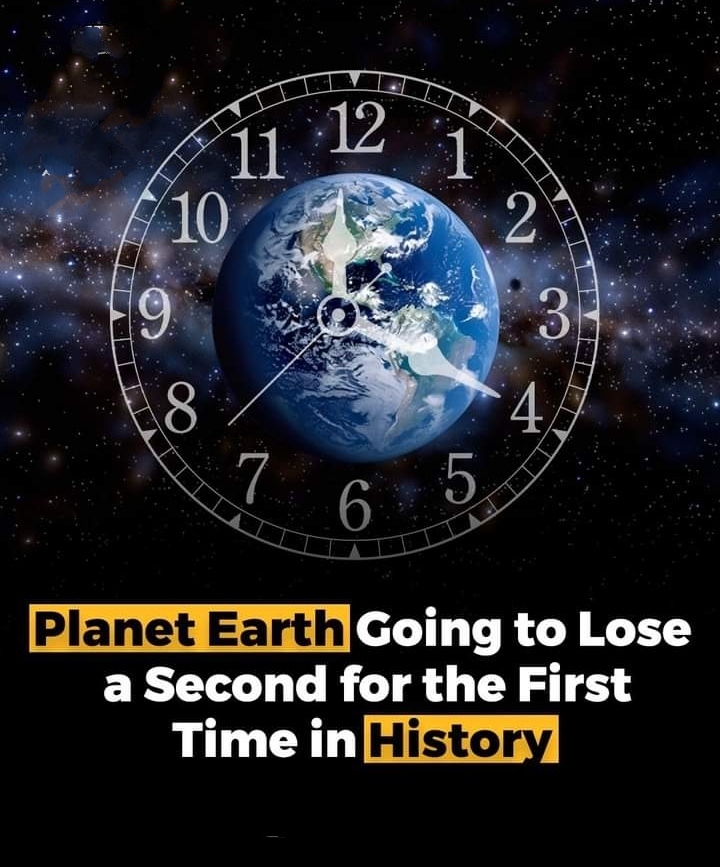.
The Earth’s changing spin is leading to a potential need for world timekeepers to subtract a second from our clocks, termed a “negative leap second,” around 2029. This unprecedented situation arises because the planet is rotating slightly faster than before, a phenomenon attributed partially to ice melting at both poles counteracting the acceleration.
Despite not posing a catastrophic threat, this change underscores the unique period we’re in, according to Duncan Agnew, the lead author of the study on this matter. Dennis McCarthy, a retired director of time for the U.S. Naval Observatory, confirms the inevitability of a negative leap second, emphasizing that it’s just a matter of when.
The complication arises from the discrepancy between astronomical time, based on the Earth’s rotation, and atomic time, regulated by atomic clocks. While the Earth’s rotation has been gradually slowing down due to tidal effects, atomic clocks remain consistent. This dissonance led to the establishment of two time standards, with astronomical time falling behind atomic time by 2.5 milliseconds daily.
To reconcile this difference, international timekeepers began adding leap seconds periodically, but now, the possibility of a negative leap second highlights the evolving nature of timekeeping in the modern era.
…


